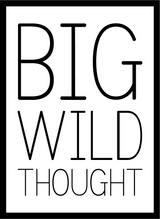falklands conservation takeover!
This week, the Falklands Conservation have taken over our blog, to let you know abit more about them and their amazing work..
"The Falkland Islands are a special place for wildlife. Although we cannot offer the rich diversity in species as some other small island nations, what we lack in quantity we more than make up for with quality! We share these islands with half a million pairs of breeding black-browed albatross (more than two thirds of the world’s population), our shores provide a haven for vulnerable southern rockhopper penguins, and we are one of the only places in the world where endangered sei whales can be regularly seen along the coasts. We have over a hundred colonies of gentoo penguin, making up of a third of the world’s population of this fantastic species – the fastest penguin in the world. We are also home to incredible rare and tame birds, such as the Cobb’s wren, which is only found here in the Falklands, or the striated caracara – a curious raptor that will hop along behind you as you walk, waiting for any carelessly dropped food!"
Mother and calf Sei Whale
"Falklands Conservation are the largest membership-based conservation group in the Falkland Islands and work across a wide range of themes, from conservation-based research, to on-the-ground habitat restoration, and vital community engagement and government advocacy. These activities aim to conserve and restore our natural environments, for the benefit of both our incredible wildlife and the local community which rely on this natural wonder. A healthy and vibrant natural environment not only boosts health and wellbeing, but also supports people’s livelihoods as the environment underpins the three largest industries of the islands – fishing, tourism, and agriculture."
"Throughout the summer months much of our active fieldwork is wildlife surveys; we monitor breeding seabird populations and conduct whale surveys in order to gather data to drive environmentally-sustainable management of our important marine areas. In April-May each year, as summer fades, we care for recently fledged albatrosses and shearwaters which crash-land across the islands; these young birds are only just learning how to fly, and can be disorientated by the lights of the towns and settlements. We also run a Seabird Rehabilitation Centre, which can care for oiled or injured wildlife, especially penguins. Penguins travel huge distances across the oceans and if they swim through even a small patch of oil it can have dire consequences - oil damages the natural waterproofing of the birds’ plumage, meaning they are at risk of hypothermia and drowning if they remain at sea, and they will also ingest the oil as they attempt to clean themselves. When an oiled seabird is brought into the facility there is a set recovery process; the oil is cleaned with warm water and a mild detergent, the bird is then rinsed and stays inside for at least two weeks to keep warm and dry until their feathers regain their natural waterproofing. Staff and volunteers feed the penguins up to 2kg of fish each day, and the birds need to shower and bathe to get them to preen and care for their feathers, this in turn encourages natural waterproofing oils to return. Our facility has a small swimming pool for exactly this purpose. It isn’t until the birds are once again fully waterproof that they can be released back into the sea, and this can take up to four weeks."
Two King Penguins, nicknamed Snowdrop and Romeo, at the Seabird Rehabilitation Centre, after being cleaned of oil.
"Through the winter months our main activity, in terms of the man-hours required, is habitat restoration. Across the Falkland Islands there has been widespread damage to our native habitats since explorers first started settling in these previously uninhabited islands, about 300 years ago. Many staff, volunteers and local landowners spend hours and days planting tillers of tussac and other native species, often in cold and difficult weather, to restore ecosystems and to safeguard the future of our wildlife. Together we all learn more about our natural environment and how to care for it, and in time these restored areas may become homes for many important insects and small birds, as well as penguins, sea lions, and more. Ecological restoration is vital for our Falklands natural environment, but also has a global role to play – much of our islands are peatlands, which (when healthy) are fantastic at capturing carbon from the atmosphere and storing it in the soils, where it can no longer contribute to the climate crisis."
"In the local community we run a youth group, the Watch Group, and this group forms part of our long-term investment in the wildlife and the community of these islands. It is vital to support these young Islanders, aged 8-16, to explore and appreciate their fantastic natural environment, but also to encourage them to understand the threats that our wildlife faces, and where these young conservationists themselves can be helping, not just now but also long into the future. In addition to tussac planting and litter picks, this amazing and insightful group of children and young adults have been meeting with our nation’s elected officials - questioning them on the effectiveness of their environmental policies, and advocating their own Watch Group Islands Plan - a series of environmental priorities as identified by Watch Group members themselves."
Volunteers plant Tussac on the Sea Lion island
"Falklands Conservation rely on the generosity of our supporters to continue our work in the Islands, and we are delighted to be supported by Big Wild Thought. To find out more please visit us at www.falklandsconservation.com, find us on social media, or email info@conservation.org.fk"
Michelle Winnard
Communications and Marketing Officer



